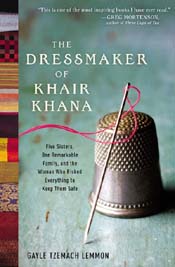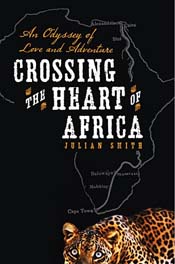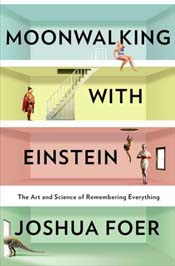 It’s been another very slow reading week for me, and not because of anything wrong with the book I was in the middle of, The United States of Arugula by David Kamp. I just ended up being unexpectedly busy, a week where I spent more time doing — playing soccer, getting drinks, eating out, protesting injustice, and watching movies — than reading. I didn’t finish a single book all week, and that made me feel out-of-sorts.
It’s been another very slow reading week for me, and not because of anything wrong with the book I was in the middle of, The United States of Arugula by David Kamp. I just ended up being unexpectedly busy, a week where I spent more time doing — playing soccer, getting drinks, eating out, protesting injustice, and watching movies — than reading. I didn’t finish a single book all week, and that made me feel out-of-sorts.
It also got me thinking about how to balance between the time I need to myself, absorbing stories and new ideas from books, and the time that I need to spend outside of what is, for the most part, a solitary activity. What’s the way to balance between being a reader and being a do-er? What is the point at which a solitary hobby turns into a way to enable a tendency towards solitude?
 I think I’ve written on here before about my tendency to be an observer rather than a participant. A person who is just as happy, maybe even happier, spending time alone or with one person than out in crowds. I’m an introvert, which I think makes me less inclined to be a do-er in most instances. But you know what, doing things — like going out with 100,000 other people to protest or eating good food with close friends — can be a good use of time too.
I think I’ve written on here before about my tendency to be an observer rather than a participant. A person who is just as happy, maybe even happier, spending time alone or with one person than out in crowds. I’m an introvert, which I think makes me less inclined to be a do-er in most instances. But you know what, doing things — like going out with 100,000 other people to protest or eating good food with close friends — can be a good use of time too.
Of the many factoids that have stuck in my brain from Joshua Foer’s Moonwalking With Einstein, a book on the art and science of remembering, the one that’s been on my mind this week is the idea of novelty: “Monotony collapses time; novelty unfolds it.” Having new experiences makes life feel longer, and I want mine to feel as long as possible.
This week I started thinking about doing the Day Zero Project, a challenge to complete 101 goals in 1001 days. Why 1001 days? The website says,
Many people have created lists in the past — frequently simple challenges such as New Year’s resolutions or a ‘Bucket List’. The key to beating procrastination is to set a deadline that is realistic. 1001 days (about 2.75 years) is a better period of time than a year, because it allows you several seasons to complete the tasks, which is better for organising and timing some tasks such as overseas trips, study semesters, or outdoor activities.
I love lists, and I love things crossing off lists. And even more, I love the idea of becoming more of a person that does things instead of waits around for experiences. I need a way to beat my own impulse towards retreating by coming up with a method to encourage myself to do more. As of today, I have 61 things on my list — many related to reading, but others about cooking, traveling, and crafting. I need to come up with 40 more tasks, and then if I’m still all pumped up about being a do-er, I’m off and running.
What do you think about the differences between reading and doing? Are you more of a reader or a do-er? Is there one you’d like to be more than the other? Have you ever tried a 101 in 1001 type of challenge?


 Monday Tally is a weekly link round-up of some of my favorite posts discovered over the week. If you have suggestions for Monday Tally, please e-mail sophisticated [dot] dorkiness [at] gmail [dot] com. Enjoy!
Monday Tally is a weekly link round-up of some of my favorite posts discovered over the week. If you have suggestions for Monday Tally, please e-mail sophisticated [dot] dorkiness [at] gmail [dot] com. Enjoy!
 I think I’ve written on here before about my tendency to be an observer rather than a participant. A person who is just as happy, maybe even happier, spending time alone or with one person than out in crowds. I’m an introvert, which I think makes me less inclined to be a do-er in most instances. But you know what, doing things — like going out with 100,000 other people to protest or eating good food with close friends — can be a good use of time too.
I think I’ve written on here before about my tendency to be an observer rather than a participant. A person who is just as happy, maybe even happier, spending time alone or with one person than out in crowds. I’m an introvert, which I think makes me less inclined to be a do-er in most instances. But you know what, doing things — like going out with 100,000 other people to protest or eating good food with close friends — can be a good use of time too.



